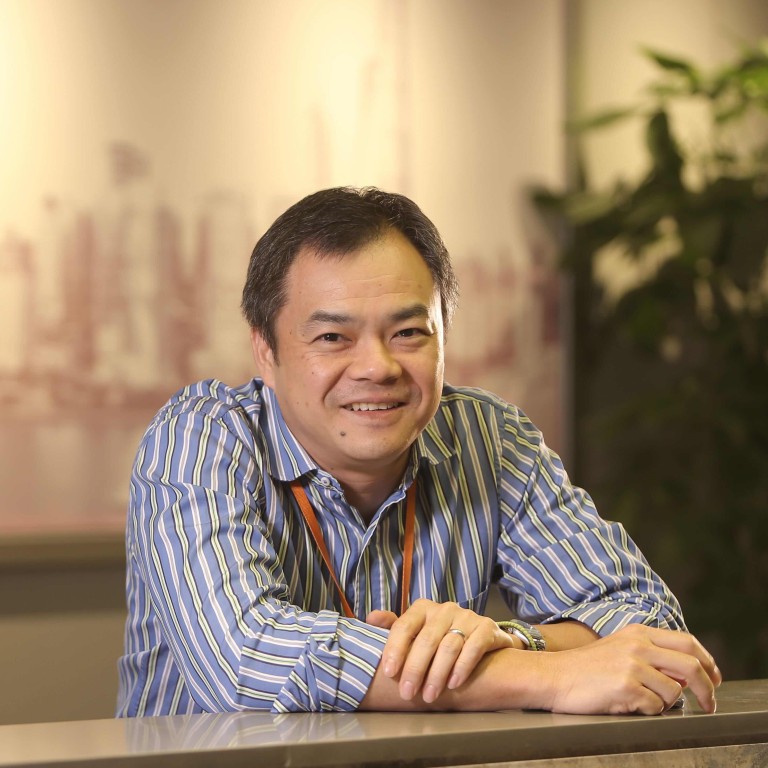
Small investors are turning to private equity amid uncertainty in financial markets, says wealth manager Lu International
- Lu International’s Lu Global app offers private equity, other wealth management products to smaller investors
- The app reflects a move by the industry to provide more self-directed investing options to consumers
Uncertainty in global financial markets in recent months has pushed investors away from equities into fixed income and, in some cases, cash, according to Kit Wong, the chief executive of Singapore-based Lu International.
But it also has heightened interest by smaller investors in a surprising area: private equity products, Wong said.
“A lot of the money is sitting in yield-based products, [such as] fixed yield and stuff like that,” Wong said. “[There’s] a lot more interest in private equity. That’s also because private equity, being very long-term hold, takes away some of the short-term volatility that people are seeing in the market.
“That’s quite a big shift in profiles. Previously, it was either equities or fixed income. Now as equities has come down, fixed income has picked up. There’s a lot of demand for longer term private equity.”
Lu International operates the digital wealth management app Lu Global, which allows investors to direct their own investments in asset management products, ranging from traditional open-ended and close-ended funds to private equity. It is owned by Ping An Insurance-backed Lufax, one of China’s largest financial technology companies.
“While it is an app-driven, self-directed, investor-driven experience, the area we’re trying to move to is get more of the alternative products available at smaller ticket sizes for everyone,” Wong said. “It’s to give everyone a chance to try something different.”
High-net-worth individuals with a minimum investment amount of US$1,000 can use the app. It features products from a variety of providers, including BlackRock, Citic, Credit Suisse, JP Morgan Asset Management and PIMCO.
‘Embrace the inner contrarian and buy’, emerging markets asset manager says
The app reflects a move by the industry to provide more self-directed investing options to consumers.
Its debut also comes as the amount of wealth held by high-net-worth individuals globally declined for the first time in seven years last year amid the backdrop of slowing economic growth and a trade war between the United States and China, according to a report by technology consulting firm Capgemini.
Global wealth declined by US$2 trillion to US$68.1 trillion in 2018, driven primarily by drops in the Asia-Pacific region and China, according to Capgemini’s annual World Wealth Report.
“Within an atmosphere of upheaval, near-term global economic recovery remains uncertain,” Capgemini said in its July report. “Geopolitical and trade concerns have left the global economy and stock markets on a low note for the year.”
Capgemini said global asset allocations shifted significantly to “a more conservative position” in the first quarter of this year, with cash and cash equivalents accounting for nearly 28 per cent of high-net-worth individuals’ portfolios. Equities fell to second place, at nearly 26 per cent, and alternative investments received higher allocations in high-net-worth individuals’ portfolios globally, according to the report.
China, Hong Kong rich led US$2 trillion decline in global wealth last year
Lu Global began offering services to accredited investors in Singapore and other investors in Asia in September 2018 and is looking to expand to neighbouring markets in Asia through licensed local partners. It has more than 300,000 registered customers from 19 different nationalities, with an average investment of about US$27,000 a person.
The company is using a variety of technologies, including some developed by Ping An, to sign up customers and comply with “know your customer” and anti-money-laundering regulations. Facial recognition also is used for security on the account, such as verifying a person’s identity if they want to change their address, Wong said.
“The onboarding itself is a full digital experience,” Wong said. “You download the app, you sign up online and submit your documents through the app … we use facial recognition to prove that the person signing up is a real human being and not a video or a robot. Secondly, the facial recognition helps to match the picture of the face in the passport or other document provided.”
As part of the sign-up process, Lu Global evaluates a customer’s risk level – and restricts their ability to buy products that do not fit their risk profile. The company also uses videos and animation, in addition to traditional documents, to help users better understand their investments, Wong said.
The average Lu Global customer is in his or her 30s to early 40s, with people in the financial and tech industries being more active on the platform, Wong said.
Wong said he would like to see the company reach US$2 billion to US$3 billion in assets under management in the next five years.
“We do know that requires a fair bit of hard work,” he said.

